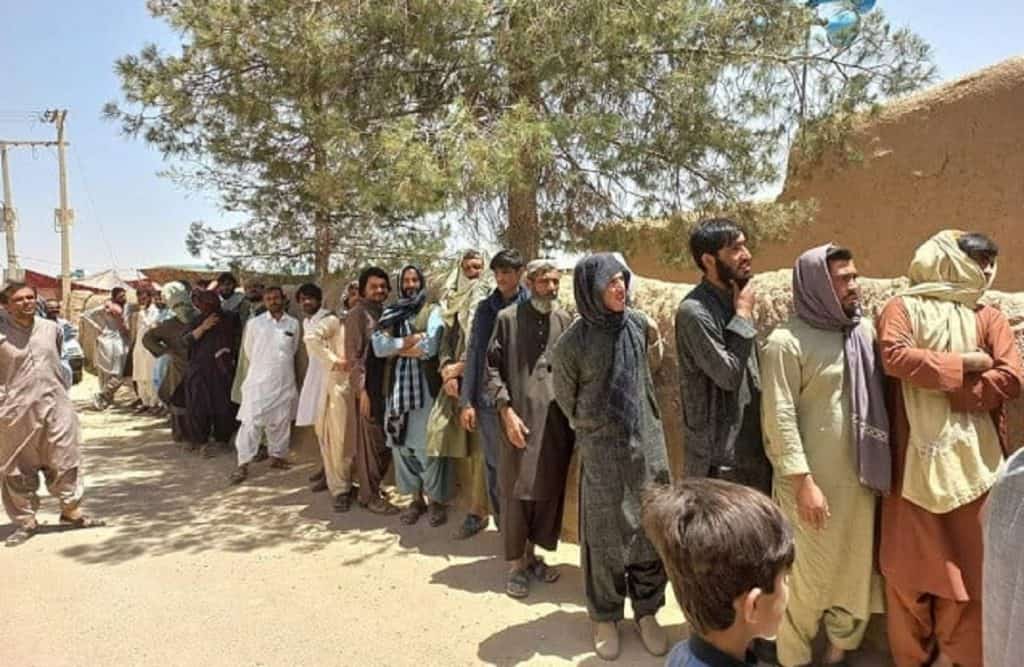By Zakria Baloch
Sistan, a province of Iran with a predominantly Baloch ethnic population, is an undeveloped area of Iran, geo-strategically located in Chabahar, while Balochistan, a province of Pakistan in the southwest, is an undeveloped geo-strategic area of Gwadar.
Both Gwadar and Chabahar open up to the Gulf and have the potential to become trade hubs for the Middle East and South Asia.
Balochistan, Pakistan’s largest province by area and smallest by population (12.34 million), is Pakistan’s least developed province, with high infant and maternal mortality rates, poverty, unemployment, illiteracy and high crime rates.
According to Iran Primer, Sistan, with a population of 2.8 million, is the second largest province of Iran’s 31 provinces. The Iranian Human Rights Documentation Center (IHRDC) released its report on extreme inequalities, in which the Sistan and Baloch minorities stand out for their high rate of executions, arrest and torture of activists, fatal police shootings of people suspected of fuel smuggling, statelessness, poverty and lack of access to clean water.
Iranian regimes have been authoritarian for decades, with self-appointed clerical rulers, while Pakistan, although it has democratic pretensions, is actually an authoritarian state.
Islamabad has failed to resolve the Balochistan issue. The Baloch are enduring exploitation of their natural resources and inequalities in the distribution of shares of their natural resources. Islamabad has consistently pushed its policy of heavy-handed armed responses toward the Baloch and has denied negotiations on the demands of the people of Balochistan.
The states of tension are increasing day by day and the Baloch militancy is increasing its attacks on the Pakistani army to counter the policies of building more military garrisons to strengthen the network of military bases.
Economic projects in Balochistan are only for the benefit of the federal government, while the people of Balochistan want political and economic autonomy and have long been demanding the transformation of power from central to provincial government.
A violent and lethal Tehran policy in Sistan has exposed the vulnerabilities of Iran’s security apparatus. Iran’s central government has failed to integrate Sistan into Iranian society. In the Baloch-populated areas, tensions increase due to poor infrastructure, non-technical education, poor health care, unemployment, and all the basic facilities not yet served.
Discrimination and socioeconomic conditions lead to more clashes, and separatist groups have publicized these inequalities as the main reasons for their opposition to Tehran. Tehran is playing a bimanual game with the Baloch in pursuit of its security dimensions: on the one hand, it has weakened the strength of Baloch separatist groups in Sistan to gratify Islamabad; on the other, Tehran has begun fencing off the Pakistan-Iran border to prevent Pakistani Baloch militants from entering Iran.
The Baloch on both sides of the border are politically and economically depressed and deprived, in Balochistan thousands of Baloch have disappeared, whether political activists, teachers, students, poets, writers or professionals in any field of life. Thousands have been killed and brutally tortured in the dungeons, while Islamabad continues its policy of armed force to control the situation and censor factual news within the province.
To resolve the tensions between the two countries and the Baloch who reside on both sides of the border, the provinces’ participatory representatives should be granted autonomy and their demands for basic services should be met. Full sharing of natural resources should be guaranteed, discrimination for differences in culture or belief should be reduced, and conflict should be seen as a high cost of economic and political instability.
Author: Zakria Baloch – Student of International Relations at University of Balochistan, Quetta
(The opinions expressed in this article are solely those of the author and do not necessarily reflect the views of World Geostrategic Insights)







